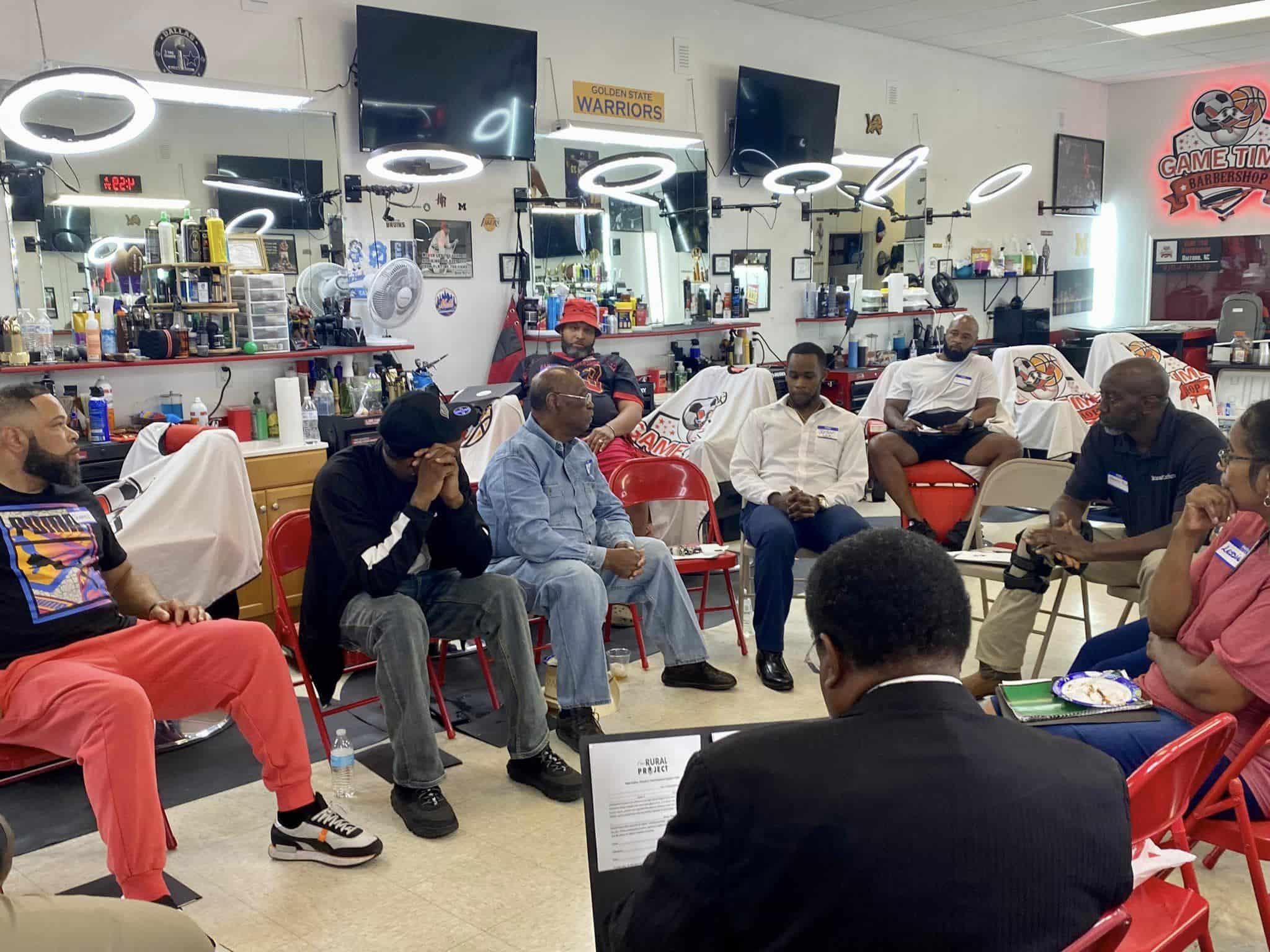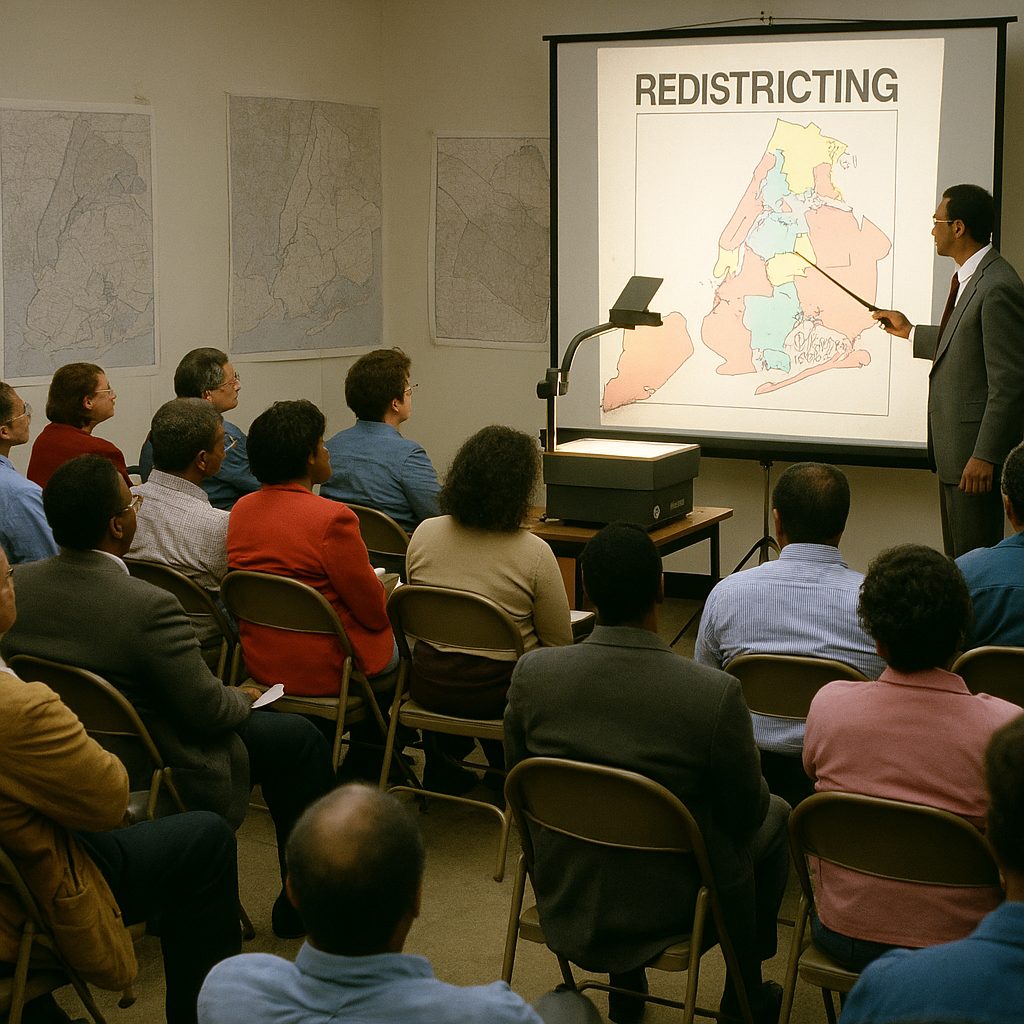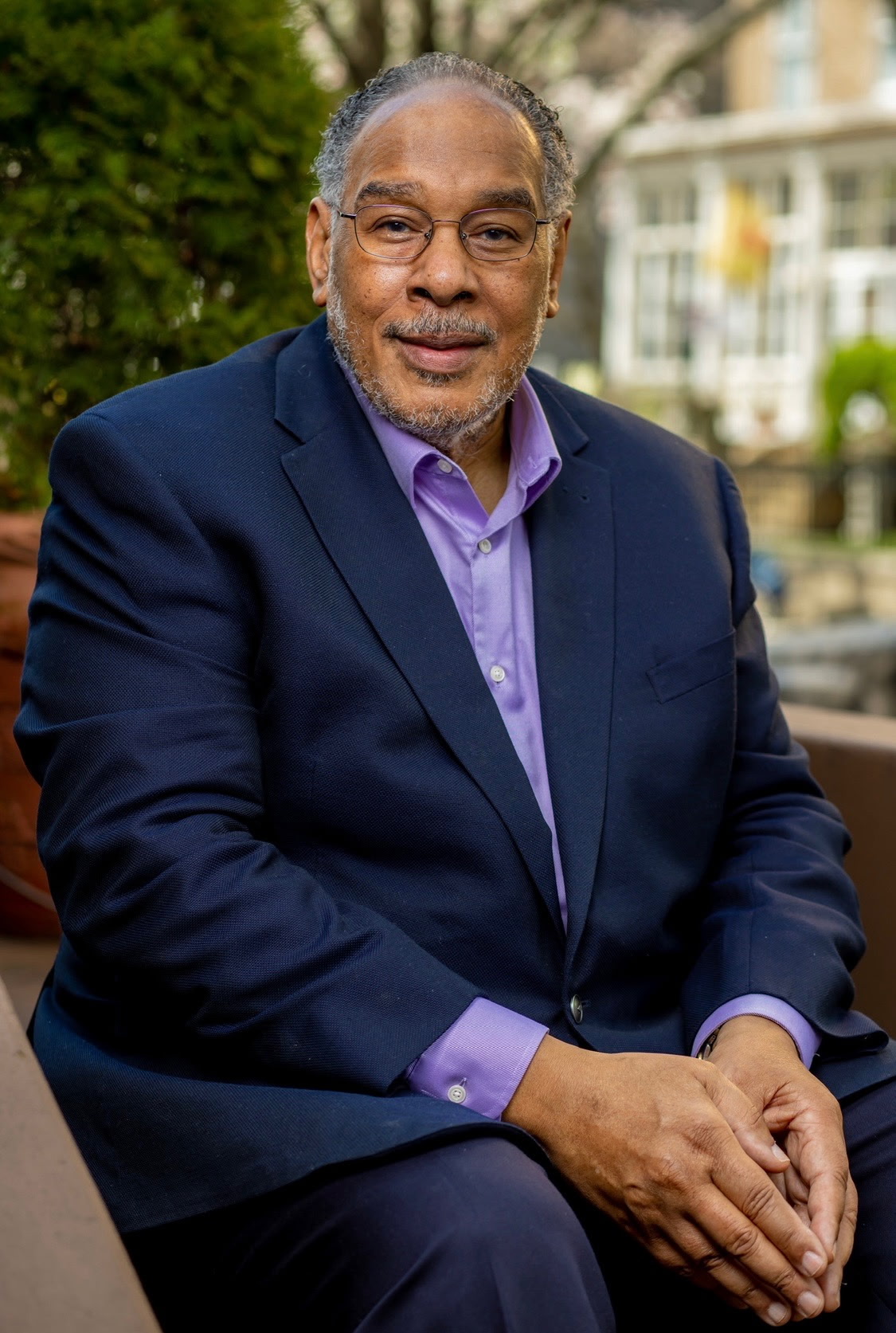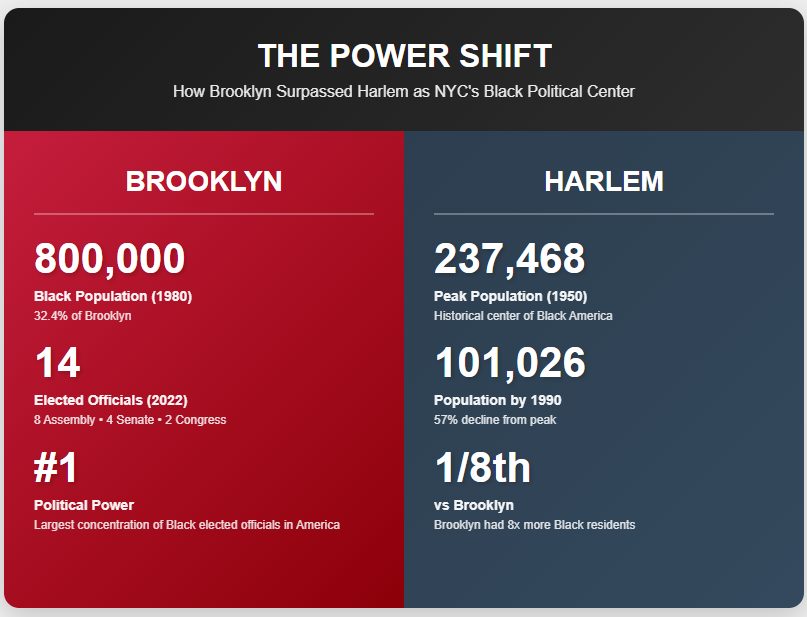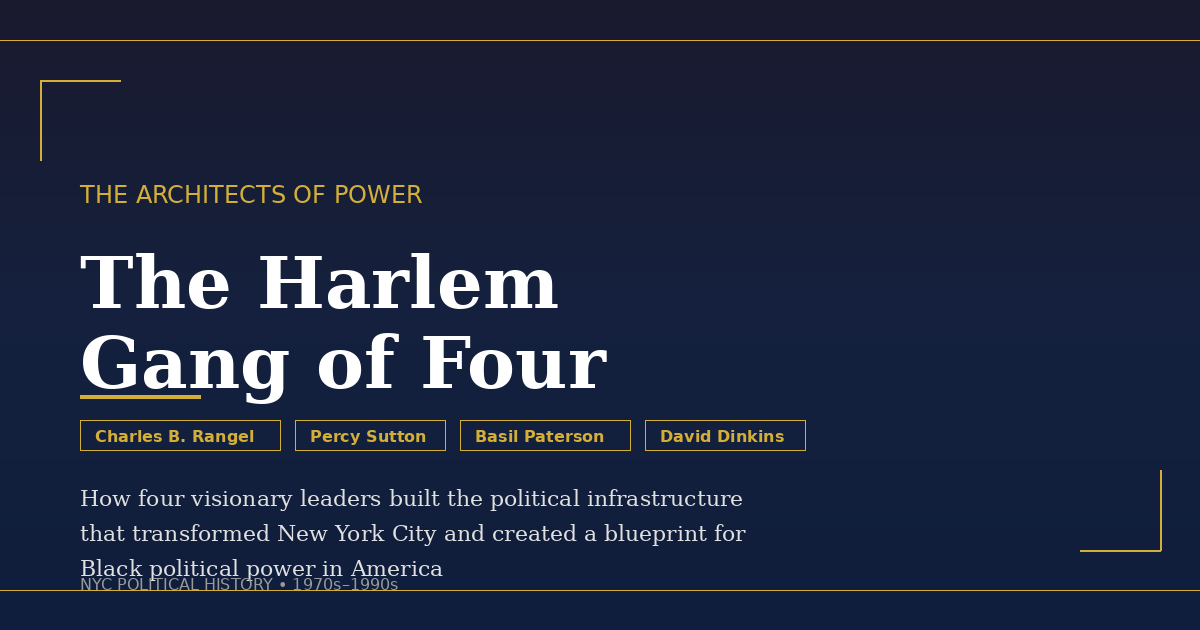Vice President Richard M. Nixon listens as Senator John F. Kennedy talks during their televised presidential race debate. October 1960. (AP Photo)This post first appeared on TomDispatch
Joe Biden’s got a problem — and so do I. And so, in fact, do we.
At 76 years old, you’d think I’d experienced it all when it comes to this country and its presidencies. Or most of it, anyway. I’ve been around since Franklin D. Roosevelt was president. Born on July 20, 1944, I’m a little “young” to remember him, though I was a war baby in an era when Congress still sometimes declared war before America made it.
As a boy, in my liberal Democratic household in New York, I can certainly remember singing (to the tune of “Whistle While You Work”) our version of the election-year ditty of 1956 when President Dwight D. Eisenhower faced off against Democratic nominee Adlai Stevenson. The pro-Republican kicker to it went this way: “Eisenhower has the power, Stevenson’s a jerk.” We, however, sang, “Eisenhower has no power, Stevenson will work!” As it happened, we never found out if that was faintly true, since the former Illinois governor got clobbered in that election (just as he had in 1952).
I certainly watched at least some of the 1960 televised debates between Eisenhower’s vice president, Richard Nixon, and John F. Kennedy — I was 16 then — that helped make JFK, at 43, the youngest president ever to enter the Oval Office. I can also remember his ringing Inaugural Address. We youngsters had never heard anything like it:
“[T]he torch has been passed to a new generation of Americans — born in this century, tempered by war, disciplined by a hard and bitter peace, proud of our ancient heritage — and unwilling to witness or permit the slow undoing of those human rights to which this nation has always been committed, and to which we are committed today at home and around the world… Ask not what your country can do for you — ask what you can do for your country.”
While a college freshman at Yale, I saw him give a graduation speech in New Haven, Connecticut. From where I was standing, he was as small as one of the tiny toy soldiers I played with on the floor of my room in childhood. It was, nonetheless, a thrill. Yes, he was deeply involved in ramping up the war in Vietnam and America’s global imperial presence in a fiercely contested “Cold War.” Most of us teens, however, were paying little attention to that, at least until October 1962, in what came to be known as the Cuban Missile Crisis, when he addressed us on the radio, telling us that Soviet missile sites were just then being prepared on the island of Cuba with “a nuclear strike capability against the Western Hemisphere.” As a generation that grew up ducking-and-covering under our school desks in nuclear-attack drills, young Americans everywhere, my 18-year-old-self included, imagined that the moment might finally have arrived for the nuclear confrontation that could have left our country in ruins and us possibly obliterated. (I can also remember sitting in a tiny New Haven hamburger joint eating a 10-cent — no kidding! — burger just over a year later when someone suddenly stuck his head through the door and said, “The president’s been assassinated!”)
And I can recall, in the summer of 1964, hitchhiking with a friend across parts of Europe and trying, rather defensively, to explain to puzzled and quizzical French, Italian, and German drivers the candidacy of right-wing Republican Senator Barry Goldwater, who was running against Kennedy’s vice president and successor Lyndon B. Johnson. Goldwater was the Trump of his moment and, had I been in the U.S., I wouldn’t have given him the time of day. Still, as an American in Europe I felt strangely responsible for the weirder political aspects of my country and so found myself doing my damnedest to explain them away — perhaps to myself as much as to anyone else. In fact, maybe that was the secret starting point for TomDispatch, the website I would launch (or perhaps that would launch me) just after the 9/11 attacks so many years later.
The Coming of a “Presidential Dictatorship”
Although I never saw Lyndon Johnson in person, I did march through clouds of tear gas in Washington, D.C., to protest the bloody and disastrous conflict — the original “quagmire war” — that he continued to fight in Vietnam to the last Vietnamese, Laotian, and Cambodian. By then, as I was growing up, presidencies already seemed to be growing down and starting to look ever grimmer to me. And of course, as we all now know, there was far worse to come. After all, Johnson at least had reasonably forward-looking domestic policies in an age in which economic inequality was so much less rampant and the president and Congress could still accomplish things that mattered domestically — and not just for the staggeringly richest of Americans.
On the other hand, Richard Nixon, like Goldwater, a “southern strategy” guy who actually won the presidency on his second try, only ramped the Vietnam War up further. He also plunged his presidency into a corrupt and criminal netherworld so infamously linked to Watergate. And I once saw him, too, in person, campaigning in San Francisco when I was a young journalist. I sat just rows away from the stage on which he spoke and found myself eerily awed by the almost unimaginable awkwardness of his gestures, including his bizarrely unnatural version of a triumphant V-for-what-would-indeed-prove-to-be-victory against antiwar Democratic candidate George McGovern.
For Nixon, the V-for-defeat would come a little later and I would spend endless hours watching it — that is, the Watergate hearings — on an old black-and-white TV, or rather watching his imperial presidency come down around his ears. Those were the years when the Pentagon Papers, that secret trove of internal government documents on Vietnam war-making by successive White Houses, were released to the New York Times by Daniel Ellsberg. (His psychiatrist’s office would later be burgled by Nixon’s “plumbers” and he would play a key role in the fall of the house of Nixon.)
It was in those same years that former Kennedy aide and “court historian” Arthur Schlesinger wrote the book he classically titled The Imperial Presidency. And it was then, too, that Senator William Fulbright described the same phenomenon in his book The Crippled Giant, this way:
“Out of a well-intended but misconceived notion of what patriotism and responsibility require in a time of world crisis, Congress has permitted the president to take over the two vital foreign policy powers which the Constitution vested in Congress: the power to initiate war and the Senate’s power to consent or withhold consent from significant foreign commitments. So completely have these two powers been taken over by the president that it is no exaggeration to say that, as far as foreign policy is concerned, the United States has joined the global mainstream; we have become, for purposes of foreign policy — and especially for purposes of making war — a presidential dictatorship.”
Amen. And so it largely remains.
The Executive Order
Keep in mind that those were still the good-old days before George W. Bush launched his own imperial war on significant parts of the planet with the invasions of Afghanistan and Iraq, based only on an open-ended, post-9/11 congressional Authorization for Use of Military Force. That first AUMF and a second one passed a year later would then be cited by the presidents to follow, whether to “surge” in Afghanistan or drone assassinate an Iranian leader at Baghdad International Airport. Congress declare war? You mean Congress have anything (other than endlessly funding the Pentagon) to do with the mess that an American world of warfare has created?
So, before Donald Trump ever left The Apprentice, the presidency had already become an imperial one on the world stage. Meanwhile, Congress and the White House could still work together domestically, but just in Republican (or in the case of Bill Clinton, Republican-style) administrations largely to further the yawning gap between the 1% of wealthy Americans and everyone else.
Otherwise, especially in the Obama years (when Mitch McConnell took control of the Senate in all his oppositional splendor), the imperial presidency began to gain a new domestic face thanks to executive orders. What little Barack Obama could do once the Republicans controlled Congress would largely be done through those executive orders, a habit that would be inherited big time by Donald Trump. On entering office, he and his crew would promptly begin trying to wipe out Obama’s legacy (such as it was) by executive orders and similar actions.
Trump’s presidency would certainly be the most bizarrely “imperial” of our time, as he and his team worked, executive act by executive act, to essentially burn the planet down, destroy the environment, lock Americans in and everyone else out, and dismantle the country’s global economic role. And in the end, in the most imperially incoherent way imaginable, with Republican congressional help, Trump would come at least reasonably close to rather literally destroying the American democratic system (“fake election“!) in the name of his own reelection.
It couldn’t have been more bizarre. Today, in a country experiencing the Covid-19 pandemic like no other and with a Congress so evenly split that you can almost guarantee it will get next to nothing done, any president who wanted to accomplish anything would have little choice but to be imperial. So who could be surprised that Joe Biden launched his presidency with a flurry of executive actions (30 of them in his first three days), mainly in the Trumpian style — that is, taken to reverse the previous executive actions of The Donald).
Grandpa Joe
I doubt it’s happenstantial that the vibrantly imperial, yet still domestically democratic, country that elected the young John F. Kennedy would, 60 years later, elect a 78-year-old to replace a 74-year-old in the White House. Joe Biden will, in turn, join forces with the 80-year-old Democratic Speaker of the House of Representatives, while butting heads with the 78-year-old Minority Leader of the Senate to “run” a country that hasn’t been able to win a war since 1945, a pandemic nation of such staggering inequality as to be nothing short of historic.
As a senator who arrived in Washington just as Watergate was unfolding, Joe Biden presented himself as the opposite of the corrupt Nixon and so an opponent of an imperial presidency. And as he recently claimed in a phone conversation with the PBS News Hour‘s David Brooks, he’s still evidently not a fan of it. And yet in a Congress unlikely to do much of anything, including convicting the previous president of incitement to insurrection, what choice does he have? The way has been paved and he’s already on that ever-wider imperial road to… well, history suggests that it’s probably hell.
Joe Biden may not believe in the imperial presidency, but it could be all he has. Congress is in disarray; the courts, stacked with Mitch McConnell conservatives, will be against much of whatever he does; and those wars launched by George W. Bush and now spread disastrously across significant parts of the Greater Middle East and Africa are anything but over.
Yes, Donald Trump was a nightmare. Still, as I wrote years ago, he was always the mosquito, not the virus. I think it tells you something, thinking back to the vibrant 43-year-old John Kennedy in 1960, that Americans, with the worst outbreak of Covid-19 on the planet, would choose to elect a former vice president who was an exceedingly familiar old man. In our moment of crisis, we have grandpa in the White House.
And yet what could be more striking than a country, not so long ago considered the planet’s “lone superpower,” its “indispensable nation,” that simply can’t stop fighting distant and disastrous wars, while supporting its military financially in a way that it supports nothing else? As it happens, of course, the “costs” of those wars have indeed come home and not just in terms of a “Green Zone” in Washington or veterans assaulting the Capitol. It’s come home imperially, believe it or not, in the very form of Grandpa Joe.
Joe Biden is a decent man, acting in the early days of his presidency in decent ways. He’s anything but Donald Trump. Yet that may matter less than we imagine. The odds are, hesitant as I am to say it, that what we face may not prove to be an imperial presidency but an imperial-disaster presidency, something that could leave Presidents Johnson, Nixon, and crew in the shade.
At 76 — almost as old, that is, as our new president — I fear that Donald Trump was just our (particularly bizarre) introduction to imperial disaster. We now live on a distinctly misused planet in a country that looks like it could be going to the dogs.
As I said when I began this piece, Joe Biden has a problem (what a problem!) and so do I. So do we all. We could be heading into American territory where no one of any age has been before.
The Only Complete Archive: All Five Currents of Black Political Strategy, 1970s–1990s Depth
Black Politics documents all five currents of Black political strategy from Reconstruction to the present—the only platform offering this diverse, comprehensive coverage. In addition, we specialize in deep archival documentation of the 1970s–1990s, the crucial decades between the well-documented 1960s civil rights era and the digital age, when Black political infrastructure was built at the grassroots level.
Featured Archives: Countdown 88 • Congressional Scorecard • Brooklyn CCE • Bill Lucy • Harlem Gang of Four • Southern Regional Council • Jesse Jackson • Malcolm X • John Flateau • Black Political Parties
📖 BlackPolitics.org uses a Five Currents framework to analyze Black political strategies—from electoral campaigns to revolutionary movements. Explore the framework →
How These Charts Were Built
Data Sources:
- Voter registration totals from official state election offices
- Voting-age population estimates from the U.S. Census Bureau’s CVAP tabulation
Methodology: Registration rates were calculated by dividing total registered voters by the estimated voting-age population for each county. Where racial breakdowns were available, Black registration rates were compared directly to Black voting-age population. Averages were derived across selected counties to illustrate structural exclusion and civic potential.




